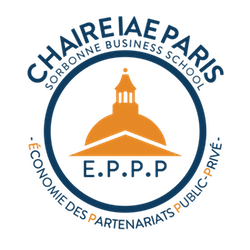10 juin 2010 Joanne Oxley : The Role of Hybrid Organizations in Corporate Citizenship Programs: Insights from Microsoft’s « Partners in Learning » Program
Joanne Oxley
(Rotman School of Management – University of Toronto)
The Role of Hybrid Organizations in Corporate Citizenship Programs: Insights from Microsoft’s « Partners in Learning » Program
Abstract: Multinational corporations are increasingly called upon to act as exemplary corporate citizens and, more specifically, to contribute substantially to public goods provision in the countries in which they do business. From oil companies building schools and clinics to soft drink companies contributing to mass vaccination programs, MNCs are responding to the demands of stakeholders that they contribute to global economic, health and social development beyond the bounds of their immediate business activities. As companies shift into greater public goods provision however, old concerns about the motives of MNCs acting in the public domain are inflamed: whose interests do – or should – MNC managers serve? Who should decide what and how MNCs contribute beyond their traditional domain?
In part growing out of these old concerns, a new set of organizational issues also come to the fore, as managers and stakeholders grapple with the design of organizations that can effectively deliver the promised economic and social benefits and, at the same time, keep the costs of provision within reasonable bounds. As they grapple with these complex issues, MNCs and other stakeholders have begun to experiment with a variety of hybrid organizational forms at the boundary between the public and private domains. These organizations include partnerships linking MNCs with local entrepreneurs and small businesses, local governments, international quasi-governmental bodies such as the World Economic Forum or the World Health Organization, and other Non-Governmental Organizations of both local and global scope.
Choices regarding who to partner with and how to organize partnerships at the public-private interface may have a large impact on both the efficiency and credibility of an MNC’s public goods activities, but there is as yet little systematic research on the topic. At the same time, many of the salient issues facing stakeholders resonate strongly with core concerns in prior research in organizational economics and international business. In this paper we explore these issues by examining one prominent example of public goods provision by an MNC – Microsoft Corporation’s Partners in Learning (PiL) program. We draw on a field-based case study examining the structure and evolution of hybrid organizations through which Microsoft’s PiL program was implemented in two countries, South Africa and Jordan. Microsoft’s contrasting organizational approach in implementing its PiL program in these two countries provides a fascinating example of the conflicts and compromises that contribute to organizational design at the public-private interface. It also provides a rich background context for formulating and extending theory in this important area.
